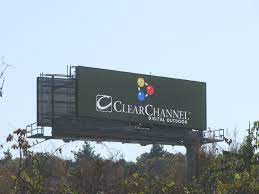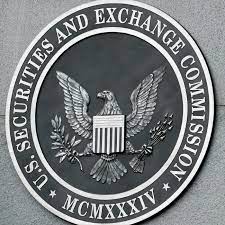Clear Channel Settles SEC FCPA Case Against Former Chinese Subsidiary for $26.1 Million

Clear Channel, a San Antonio-based advertising company, paid bribes to Chinese government officials with cash, gift cards, first-class travel, hotels, meals, golf clubs, vases, expensive gifts, entertainment and other benefits, often tied to influence contract renewal negotiations. Executive A spent hundreds of thousands of dollars without any pre-approval or review on government officials for travel, lodging, meals and entertainment in order to secure outdoor advertising contracts and public bus shelter spaces.
Between 2012 and 2019, Clear Media violated the FCPA until Clear Channel sold the company in 2020. Clear Media falsely documented payments to cleaning and maintenance companies as a means to fund illegal payments for “customer development” expenses. On numerous occasions, Clear Media cautioned local management and employees not to identify the recipient of any gifts and hospitality, and to omit any description of the purposes of the expenditure.
Clear Media made payments to the cleaning and maintenance entities based solely on oral agreements, and disguised the payments as “subsidies” or “special request” expenses. In cases where there was a written agreement, the payment terms and basic compliance provisions were not included. Also, Clear Media maintained an annual reserve of approximately $600,000 for “special funding,” ad hoc requests and sometimes for “Government official entertaining.”

Clear Media officials spent these funds to maintain a “close relationship” with Chinese government officials, and to prevent them from putting a specific contract out for public tender.
Additionally, Clear Media developed an off-the-books cash fund to retain undisclosed consultants to develop advertising business from approximately 70 private and government customers. Clear Media did not conduct diligence or document the engagement of the undisclosed consultants. In some cases, Clear Media created false invoices and tax records to justify cash payments to three shell company intermediaries that provided no actual services.
Clear Channel Audits
From 2012 to 2017, Clear Channel auditors regularly cited Clear Media’s deficiencies, red flags, indicators of bribery and inadequate internal controls. The auditors cited numerous remedial measures but Clear Channel failed to ensure that appropriate remedial steps were taken. In some cases, Clear Channel’s internal auditor erroneously reported that audit issues were remediated based on false information provided by Clear Media. In many cases, the internal auditors found the same issues in subsequent audits.

In 2012, Clear Channel’s internal auditors reported that Clear Media made large discretionary payments to cleaning and maintenance entities in China that interacted directly with Chinese government officials. These payments were not linked to a specific written contract.
In 2015, Clear Channel’s auditors reported that Clear Media did not pay any intermediaries to interact with Chinese government officials, based solely on the representations (which were false) made by Clear Media managers. Clear Channel’s internal auditors made no attempt to verify these representations, which were false, by reviewing documentation or sampling various transactions. Nonetheless, Clear Channel’s auditors uncovered a variety of problematic expenses to pay for gifts and entertainment for Chinese officials and other benefits.
In 2015, 2016 and 2017, Clear Channel’s internal auditors reported to management that Clear media’s gifts and entertainment expenses for Chinese officials may be “problematic” or “high risk” and carried risks of fines and reputational damage.
In addition, in 2017, both Clear Media’s and Clear Channel’s internal auditors cited the cleaning and maintenance entities’ government interactions and the elevated risk of corruption violations. In particular, payments to these entities included “special request” expenses and “allowances” to enable these entities to “maintain or build up relationships with local authorities.”
Blocked Access to Records

Clear Channel’s internal auditors requested access to payment documentation and support materials but were consistently rebuffed by Executive A from Clear Channel. Notwithstanding these rejections, Clear Channel’s internal auditors continued to seek access to the documents from Clear media’s Chairman of the Board.
In 2018, a Clear Media cashier confessed to Chinese authorities that he had participated in a decade-long misappropriation scheme. Clear Media’s external auditors identified suspicious commission payments made to entities related to Executive A. Over the ten year period, 2007 to 2017, three Clear Media employees stole over $10.2 million, “off-book” accounts totaled at least $5.2 million that was not recorded as income; and between 2015 and 2017, Clear Media made approximately $9.8 million in cash “customer development” payments to 19 secret consultants to obtain or retain business with approximately 70 government and private customers. Executive A prevented investigators from interviewing Related Group employees regarding these “customer development” expenses and from accessing its records.
In April 2018, Clear Channel disclosed this matter to the SEC, and delayed filing its annual report. Clear Channel’s external auditor determined that Clear media’s internal controls over financial reporting had a material weakness. In March 2020, CCOH disposed of its interest in Clear Media.
Clear Channel Remediation and Cooperation
Clear Channel received credit for its cooperation and remediation.
Clear Channel’s cooperation included: (1) promptly sharing facts developed in its own internal investigation; (2) proactively producing relevant documents, including documents from Clear Media, both prior to and following the sale of Clear Channel’s interest in Clear Media, that were located overseas; (3) producing, in real time, documentation of audits of Clear Media internal controls during the course of the investigation; (4) providing translations of documents; (5) facilitating the production of documents from third parties; and (6) facilitating the Commission’s staff’s interviews of current and former employees of Clear Channel’s foreign subsidiaries and of certain third parties.

Clear Channel’s remediation efforts included: (1) disposing of its interest in Clear Media; (2) enhancing Clear Channel’s anti-corruption compliance policies, procedures, and related internal accounting controls surrounding third-party due diligence, contracting, payments, and monitoring; gifts, meals, entertainment, and travel; conflicts of interest; and the monitoring and remediation of internal audit issues and actions; (3) implementing annual compliance reviews of internal accounting controls across its business units; (4) increasing human and financial resources for compliance, including the hiring of a dedicated Compliance Director; (5) introducing ethics and compliance considerations into performance evaluations and compensation decisions; and (6) enhancing online and live anti-corruption training programs.















